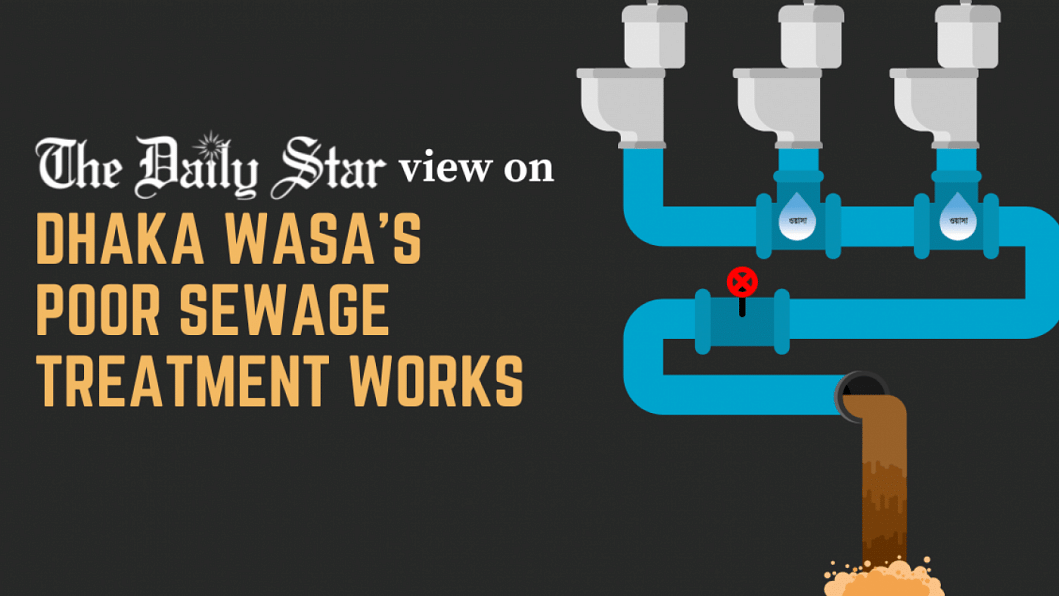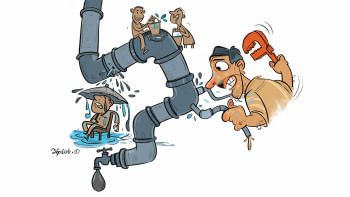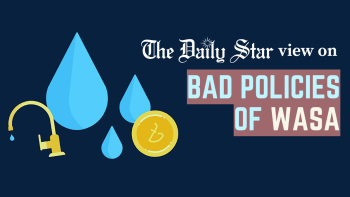Why is Wasa discharging untreated waste into Dhaka waters?

If you're a resident of Dhaka, here's a question to start your day: When was the last time Dhaka Wasa made headlines for something that wasn't outright objectionable? It may be hard to answer. There remains, after all, an air of inevitability around its incompetence, mismanagement and irregularities that seems impossible to break. On Tuesday, Wasa again put itself on the spot after a daily reported how, between FY 2018-19 and FY 2020-21, it collected Tk 1,066 crore from residents for a service it barely delivered: sewage treatment. The amount was around Tk 400 crore in FY 2021-22. So why should residents be charged for a non-existent service?
That's something only the Wasa management can answer. According to the report, even though Wasa charges the same for sewage and water services, it doesn't treat sewage enough to justify the billing. Currently, around 910 million litres of sewage are reportedly generated every day in the areas covered by Wasa. Of this, around 900 million litres of untreated sewage land directly into our freshwater sources such as rivers and canals. In other words, only less than 2 percent of the sewage is being treated. Although there is no data to measure the damage done to our waterbodies because of this massive disposal, the chairman of the National River Conservation Commission in May blamed Dhaka Wasa for the pollution of rivers surrounding the capital.
So, not only are citizens being exploited in the name of a non-effective service, but our waterbodies are also being damaged as a result of Wasa's activities. This is totally unacceptable. It is also deeply immoral. This only shows how inattentive Wasa is to the quality of its services or the needs of citizens – its customers – despite having increased its water tariff a total of 15 times since 2009.
Wasa's existing sewage treatment system is all but broken at the moment, with an insufficient and largely ineffective network of sewer lines, pipes, and appurtenances. Ideally, there should be enough treatment plants for the sewage generated and in all the areas under Wasa. And only after treatment should wastewater be discharged, not before. Unfortunately, despite reportedly collecting around Tk 3,000 crore in sewage bills over the last 13 years, not only has Wasa failed to reform and modernise its sewage treatment system in line with the need of a growing city, it has even failed to bring more than 80 percent of the areas under its sewage treatment coverage.
We're told that the Wasa authorities have taken up a project to rebuild its sewage collection/treatment system. But we must remind them that having enough sewer lines is not enough; those need to be effective as well. But more importantly, the authorities must answer for exploiting the residents in the name of a phantom service and polluting our rivers for so long.


 For all latest news, follow The Daily Star's Google News channel.
For all latest news, follow The Daily Star's Google News channel. 






Comments